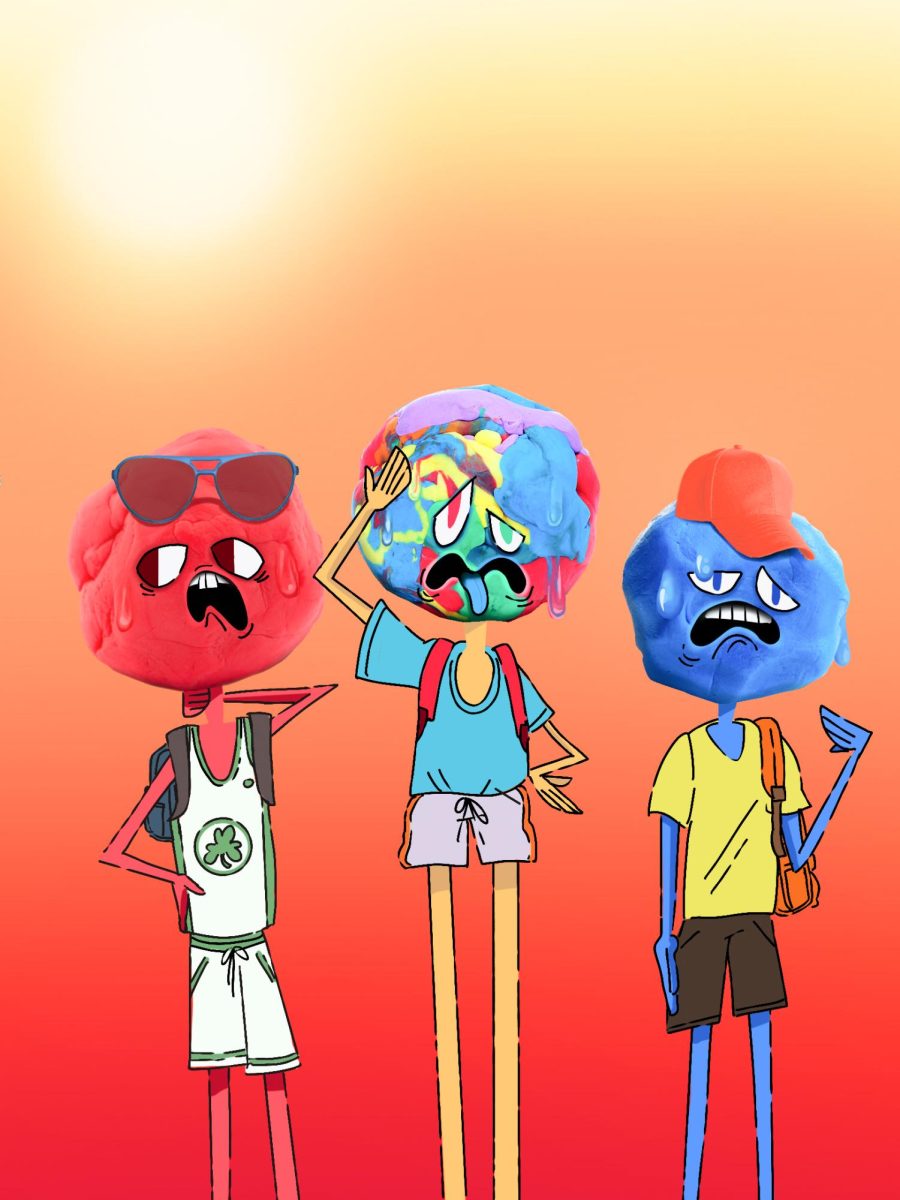For as long as I can remember, every season has been worse than the last. A hurricane here, a tsunami there; even New England, which is usually characterized by its shorter, more moderate summers, has been sweltering and oppressive year after year. According to the Boston Harold, in 2021, the same year that California’s Death Valley reached 130 degrees Fahrenheit—a mere four degrees cooler than the world record—Boston suffered its hottest summer in decades in a devastating heat wave [1]. Our winters have been colder and windier, and I can’t remember the last time my hometown wasn’t in a drought.
It’s only expected to get worse from here on out. A recent article in “Energies” estimated that at least one billion people will die prematurely due to climate change; this estimate is based on the 52,000 people who suffer coal and pollution-related deaths every year. Joshua Pearce and Richard Parncutt found in a 2023 study, as a rule of thumb, that for every 1,000 tons of carbon released into the atmosphere, one person will die prematurely [2]. The future feels bleak.
There’s a profound sadness that comes with growing up watching a dying planet. When I was little, my family and I would sit outside around a campfire as the bats flitted around overhead, but in recent years, there have been barely any. In my lifetime alone, millions of bats have died of white-nose syndrome, leaving dozens of species threatened or declining [3]. The number of places completely unaffected by light pollution dwindles by the day—less than 1 percent of North America and Europe has an unobstructed view of the night sky—disrupting migratory birds’ natural flight patterns and wreaking havoc on certain populations [4], in addition to the crippling impact it can have on human sleep patterns. The planet is on fire, literally and figuratively, and unless there’s any oil barons lurking around UMass Boston, we are powerless to stop it.
That bone-deep, aching depression has a name: climate grief. Dreading what global warming might bring can affect you just as any other anticipated loss might. Global warming presents itself as an existential terror: there is no one solution we can point to and say, “Aha! Now we’ve fixed the planet, and everything will return to normal.” Humanity is rapidly approaching the point of no return, especially if world leaders continue to ignore the overwhelming evidence that unless we switch completely to green energy in the next 50 years, we might be beyond saving. It’s enough to make anyone pessimistic, most of all people our age—old enough to understand the situation but too young to do anything meaningful about it.
For any other loss, it’s expected and even encouraged that students take time off school to process. For climate change, all-encompassing as it is, students are expected to suck it up like the rest of the world. If your grandmother died, you’d be hard-pressed to find someone who will tell you to just power through it—so how are we expected to power through an infinitely bigger loss? How can I focus on school when my skyrocketing electricity bill is a constant reminder of where my life might be headed?
Talking about climate change feels like slamming my head into a brick wall. It’s not an enjoyable discussion to have. Even if I had the energy to fight, what could I do? So much advice boils down to, “Get out and vote!” But who can I vote for that will accomplish anything? Everyone is either incompetent, ignorant or both, and their promises for change are empty. If, by some miracle, I find the perfect candidate, I can’t control the hundreds of other seats in Congress. It is infinitely easier to admit defeat in the face of climate change than to push for change from politicians in ExxonMobil’s pockets.
It’s old news that metal water bottles and paper straws make a negligible dent in carbon emissions. Electric cars are expensive and only more carbon-efficient than traditional gasoline cars if used for their entire lifecycle, not to mention the multitude of human rights abuses plaguing companies like Tesla, Nissan and Volkswagen [5]. Every company that pledges to plant a tree for each product sold never mentions that those trees usually don’t reforest damaged areas, but instead represent just another expensive monoculture that will probably die off from mismanagement [6].
The most frustrating part of this situation is that real change is possible, and if the people in power act immediately, we could completely stop, if not reverse, the worst effects of global warming. NPR reports the hole in the ozone layer, caused by chlorofluorocarbons in certain manufacturing processes, is well on its way to being repaired thanks to United Nations action and is expected to make a full recovery by 2040 [7]. Those faint, fleeting glimmers of hope are what keep me from succumbing to climate grief. Whatever happens, we’re all in it together, and all we can do in the meantime is refuse to stay silent.
SOURCES:
[2] https://www.mdpi.com/1996-1073/16/16/6074#sec2dot1-energies-16-06074
[3] https://www.usgs.gov/diseases-of-terrestrial-wildlife/white-nose-syndrome
[4] https://www.un.org/en/un-chronicle/growing-effects-light-pollution-migratory-birds
[5] https://www.weforum.org/agenda/2019/03/the-dirty-secret-of-electric-vehicles/
[6] https://www.weforum.org/agenda/2021/05/climate-change-environment-trees-desforestation/
[7] https://www.npr.org/2023/01/10/1147977166/ozone-layer-recovery-united-nations-report


